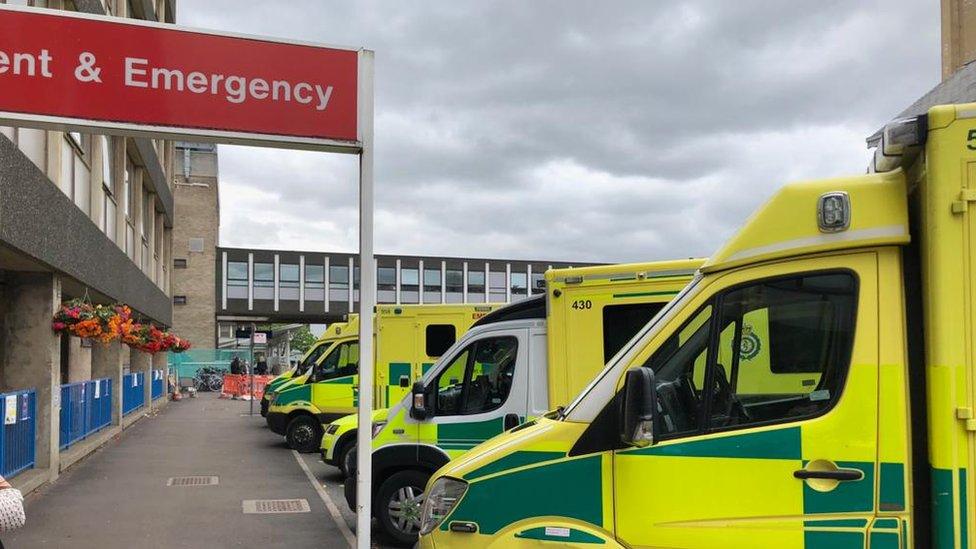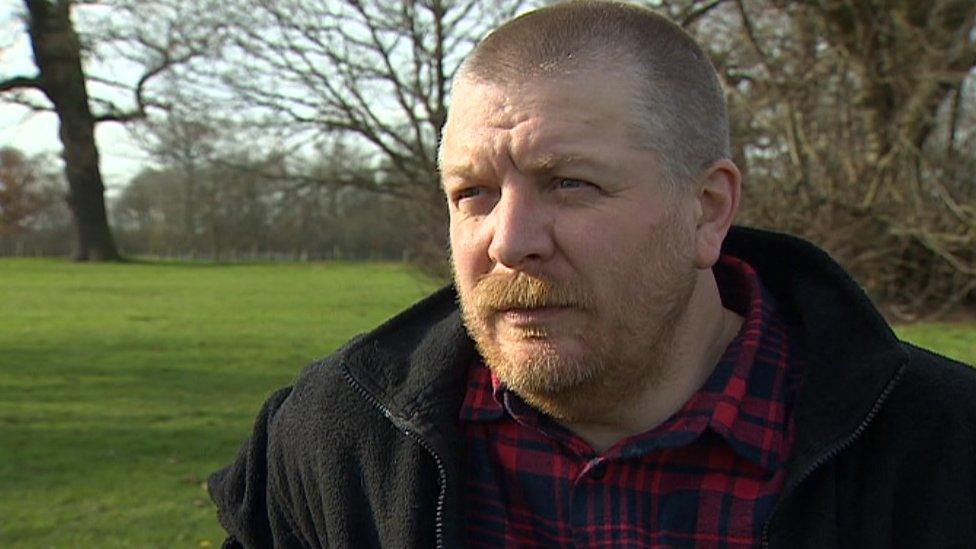East of England Ambulance ex-staff speak of 'toxic environment'
- Published

The latest CQC report has recommended the East of England Ambulance Service Trust is placed under special measures
Former staff at an NHS ambulance trust facing special measures have spoken of a "toxic" culture at the organisation.
The Care Quality Commission (CQC) said problems at the East of England Ambulance Service Trust (EEAST) included poor leadership, "normalised" bullying and cases of sexual misconduct or predatory behaviour.
Last week, the CQC recommended the trust was put in special measures.
The service said it was addressing the issues as "urgent priorities".
Three former long-serving staff members have come forward to the BBC to tell their experiences of working for EEAST.
'Quite unacceptable'

Damian Sherman said he felt "forced out" of the service
Paramedic Damian Sherman, who worked as part of the trust's Hazardous Area Response Team until 2016, claimed he was bullied.
He said he left the ambulance service before a disciplinary investigation against him was resolved.
"A number of us within the service have been saying for years there is a toxic work environment," he said.
"There's a large number of staff who suffer mental health issues, myself included.
"For it to have gone on this long, unchecked - it's quite unacceptable.
"If this situation within the ambulance service continues unchecked, we will find people making more mistakes because they don't feel safe, they don't feel nurtured."
Mr Sherman hoped any special measures status would force the organisation to improve.

The ambulance service has used 28 non-disclosure agreements in relation to bullying cases since 2016, according to the CQC report
'There was no desire to change'
A former senior officer and paramedic, who wished to remain anonymous, said he worked for the service for more than 20 years and found an "endemic culture of bullying".
He claimed he was bullied and demoted after trying to protect his 140 staff whom he described as "excellent".
"They are not supported by a management structure that shares their beliefs," he said.
In order to regain his post he said he was told to bring a grievance against his boss, but his case was decided by the same boss with HR support.
"I was forced to retire as this would have had a very negative impact on my pension," he added.
He returned to the trust a few years later, in a different role and said "only the removal of the management team will change a culture".
"I'm glad I've left [again] because it's just a terrible place to work."

A former paramedic with the ambulance service said "most people leave after five years"
'It's not getting better'
Another former paramedic, from Cambridgeshire, who also wished to remain anonymous, said he retired in 2011 due to ill-health and post-traumatic stress disorder.
During his 22-year career with the service, he said he was referred to a counsellor and clinical psychologist, only to discover his treatment was being discussed with his managers, who he claimed then tried to "manipulate my medical records".
"The sad thing is, it's repetitive and not getting better," he said.
"At one time, joining the ambulance service was a life career, but now most people leave after five years.
"That's a shame because you need experience as well as technical understanding."

The trust, which serves Bedfordshire, Cambridgeshire, Essex, Hertfordshire, Norfolk and Suffolk, was inspected by the CQC in the summer and it published its report online, external last week.
NHS England and NHS Improvement said a decision was being made on putting the trust into special measures following the CQC's recommendation.
An East of England Ambulance Service NHS Trust, external spokesperson said: "The CQC report is clear that we have not addressed some long-standing concerns and we have set out to improve the organisation's culture, strengthen safeguarding, and tackle inappropriate behaviour, as urgent priorities.
"We are working closely with the CQC, NHS colleagues and other partners to take action right now to address these concerns and put this right for the long-term."
Update 5 February 2021: This article has been updated to include some more background information about Damian Sherman.

Find BBC News: East of England on Facebook, external, Instagram, external and Twitter, external. If you have a story suggestion email eastofenglandnews@bbc.co.uk, external
- Published30 September 2020

- Published10 February 2020
